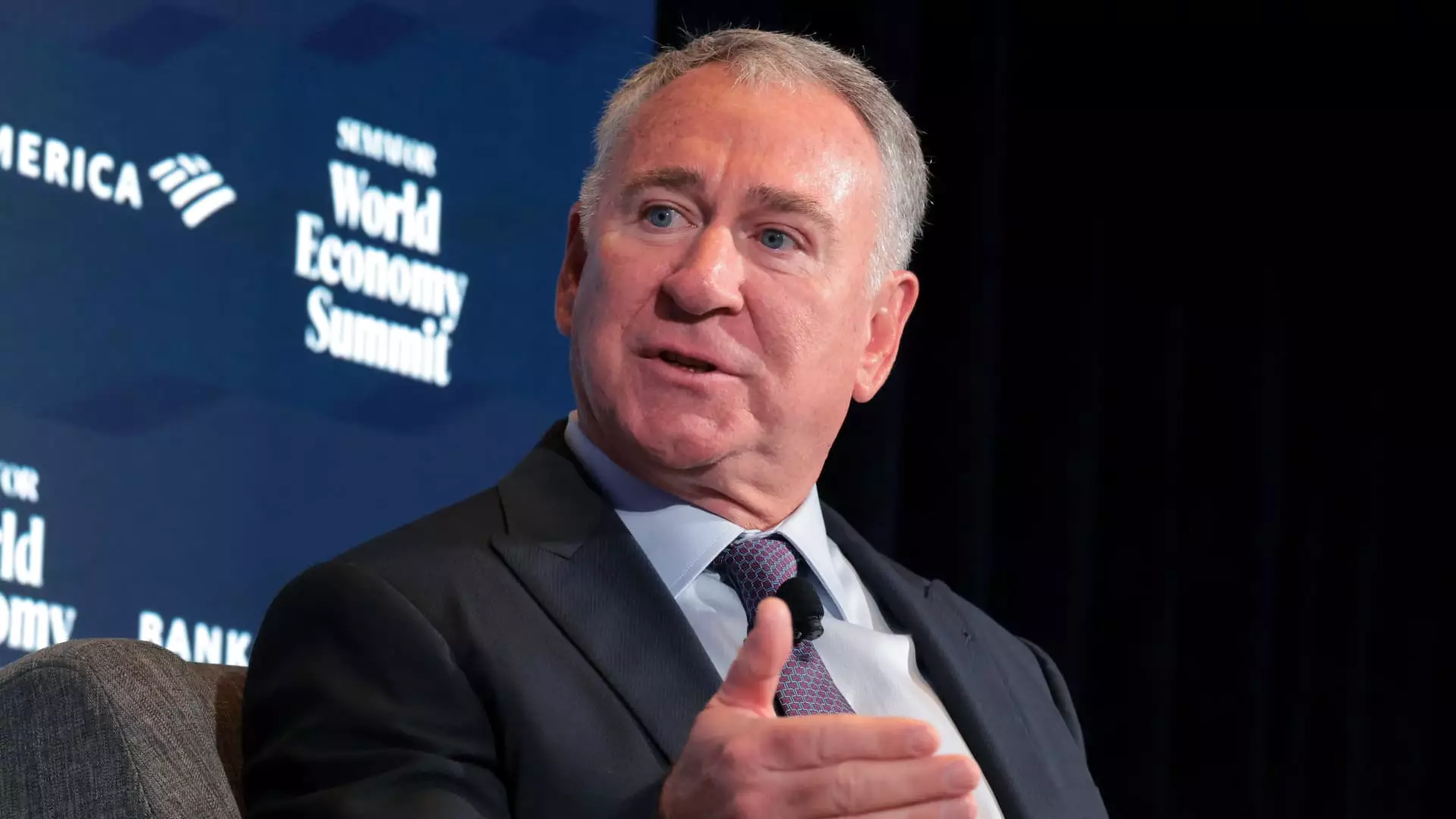In the hyper-competitive arena of global economics, the United States has long been seen as a beacon of hope and stability—a brand that signifies strength and reliability. Ken Griffin, the influential founder and CEO of Citadel, articulates a worrying truth: President Trump’s aggressive trade policies risk sullying this vital reputation. When a nation’s identity extends beyond mere geography, it becomes a universal aspiration—a brand that transcends borders. Griffin’s assertion that the U.S. is more than just a country holds particular weight; with our historical military prowess, innovative culture, and robust financial markets, we have positioned ourselves as leaders in the global arena. Yet, Trump’s recent decisions have threatened to erode this image.
Volatility and Uncertainty: A Frightening Reality
The recent escalation in tariffs announced by Trump has sent shockwaves through financial markets, revealing just how fragile investor confidence can be. Wall Street experienced heightened volatility as Trump implemented the highest tariffs in a generation—an aggressive maneuver that rattled even seasoned investors. The subsequent announcement of a temporary pause signals not just confusion in leadership but also vacillating policy directions that leave global markets uncertain.
Treasury yields rising alongside a weakening dollar paint a clear picture: investors are wary and are seeking refuge elsewhere. The implication is profound: if the U.S. can no longer be viewed as the safest haven for investments, the long-standing benefits derived from our financial structures may begin to dwindle as a direct consequence of ill-considered policies.
Brand Value and National Trust
In any marketplace, whether economic or otherwise, a brand is only as strong as its reputation. Griffin’s pointed observations about the “brand” of U.S. Treasures resonate deeply in today’s tumultuous financial landscape. The value of U.S. assets has historically been buttressed by the perception of stability and trustworthiness. With Trump’s bombastic rhetoric and erratic policy shifts, we risk diminishing this hard-won trust. Griffin argues compellingly that tarnishing such a brand can have reparative effects that linger for decades. It’s a cautionary reminder that actions in the present can yield consequences that reverberate far into the future.
The Need for Thoughtful Policy-Making
As Griffin astutely expresses, leaders, particularly in the domains of finance and trade, need to proceed with care. The stakes are too high for reckless bravado disguised as strength. The complexities of international trade necessitate a thoughtful approach—one that respects and reinforces the U.S. brand rather than jeopardizing it through impulsive decision-making. The weight of Griffin’s critique urges policymakers to calibrate their strategies to align with America’s legacy of robust diplomacy and thoughtful governance.
Two Divided Realities
It’s noteworthy that Griffin has historically voted for and supported Trump, positioning himself within the Republican fold. Yet, his willingness to critique the administration’s trade policies reveals a rift among party allegiance and the greater good. The reality is that the economic landscape is intricately tied to global reputation, and even financial titans like Griffin recognize that policy must transcend party lines when national interests are at stake.
In this charged environment, it’s paramount for investors, policymakers, and citizens alike to engage in open discourse about America’s economic direction—one that doesn’t just prioritize immediate gains but also honors the brand that has made the nation a global leader.

